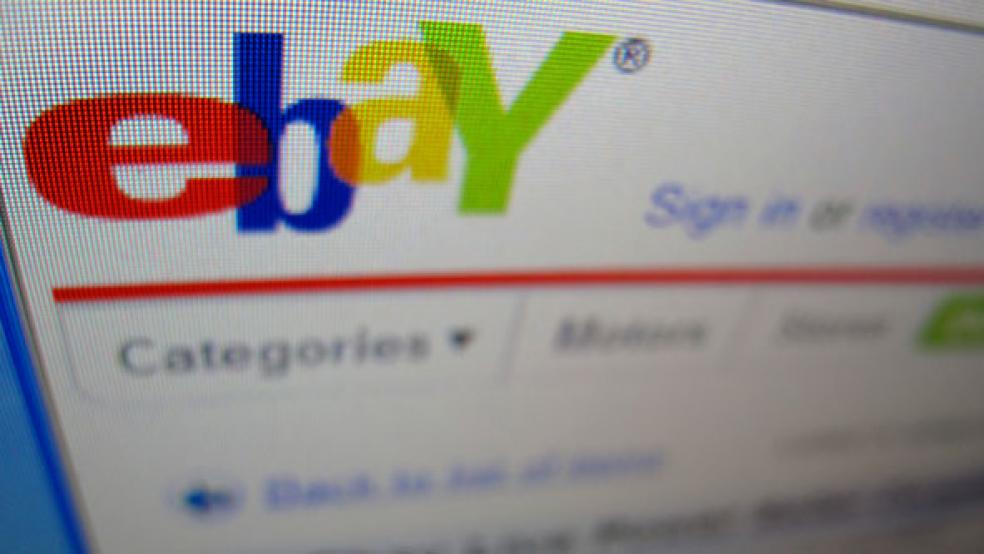eBay’s fan club is celebrating not just solid holiday quarter earnings announced last week, but the emergence of the online auction house and retailer as a viable rival to the all-powerful Amazon.com.
While it survived the dotcom collapse to become part of our cultural landscape, eBay ran into tougher waters a few years later, as Amazon ramped up its own merchant marketplace and consumers found all kinds of rivals springing up promising that they, too, could deliver great online deals. With Amazon nipping at its heels among consumers who favor doing their shopping on a single site, and smaller, niche websites attracting those with an interest in finding fashion bargains, art and antiques or home furnishings, eBay was struggling; reporting double-digit declines in in shopping revenues.
Today, that seems to be a thing of the past. True, the company’s net income looks low compared to the fourth quarter of last year, when eBay benefitted from a big gain on the sale of Skype to Microsoft. But investors – correctly – are looking past that tough year-over-year comparison to see what’s happening to eBay’s revenues, and finding a lot to love. PayPal, which eBay snapped up a decade ago, is proving to be a cash cow. Its revenues jumped 24 percent. At its current rate of growth, PayPal’s electronic payments business may even outstrip the original online auction and retailing segments to become eBay’s single largest division. As a cashless society takes shape, it’s conceivable that PayPal could become the tail that wags eBay’s dog.
While that transition to e-payments builds gradually, eBay is making a success of another transition that’s further along: the shift to mobile. PayPal is a key ingredient in this, with the company’s strategy revolving around convincing consumers to use a PayPal app as an alternative to cash or a credit card for everything from picking up a coffee and a bagel to paying for a dinner. The mobile payments world is still taking shape – only 10 percent of PayPal payments were processed by mobile users – but PayPal’s pioneering status in the industry and its relationship to eBay gives it an edge, and this is a business that is only going to grow. eBay isn’t squandering that: New initiatives include mobile “check ins” that speed up service and minimize time spent trying to pay for goods or services and the introduction of a new kind of cash or debit card tied to PayPal accounts.
eBay’s strategy is winning new fans. The company isn’t trying to cling to its original business model, but has shown itself to be willing to branch into uncharted waters. It is proving it can respond effectively to new trends, such as the transformation created by smartphones. Moreover, its success in mobile and in the payments universe means that its future won’t be shaped as dramatically by a head-to head rivalry with Amazon, as might otherwise have been the case.
It’s already clear which of those two companies investors would prefer to own. Over the last 12 months, eBay’s stock has soared about 80 percent while that of Amazon has climbed 43 percent. eBay trades at just over 27 times trailing 12-month earnings; Amazon, which has reported losses of late, has a P/E ratio that is, for all intents and purposes, irrelevant. Looking at the rate of revenue growth at the two companies is more relevant: While it’s higher at Amazon, on a year-over-year basis it is growing far more rapidly at eBay. That’s a pattern that investors like to see.
Both companies are e-commerce behemoths, and that isn’t likely to change any time soon. The two companies – born in the same corner of Silicon Valley in the same year, and part of the same crop of Internet startups – make for an intriguing rivalry. The decision by eBay CEO John Donahoe to build up fixed-price sales reduced the company’s reliance on auctions and brought the company into more direct competition with Amazon.
But eBay has one major foe, while Amazon must fight a two front war, fending off challenges from eBay to its core retailing business while chipping away at Apple’s dominance in the tablet market. On balance, look for investors to give eBay more benefit of the doubt than Amazon in coming quarters.





